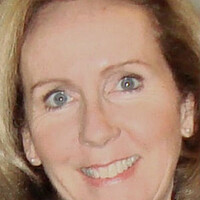A Labor Day prayer for brotherhood, in America the Beautiful
At church, on Labor Day weekend, things often end with a patriotic hymn such as "America the Beautiful". It's a simple prayer but a great moment, as the purposeful expansiveness of the song matches the hopefulness and promise of fall. With the church doors flung open and worshippers pouring out, people at the shops and outdoor cafes nearby take note, and the swell seems to embrace everyone, churchgoer or not.
“America, America, God shed His grace on thee..."
A 2007 Pew Forum U.S. Religious Landscape survey found that about 60 percent of adults say they pray at least once every day. On Labor Day, the prayer in recent history has often come under memorable circumstances – the horrible aftermath of Hurricane Katrina, for example, the memory of 9/11 on its first anniversary, the issues and people in upcoming national elections. Sometimes the prayer is an appreciation of momentous gifts of the summer past, sometimes a recognition of mercies as simple a new rain on a dry lawn. Labor Day being the de facto start of a new year in many circles, there's the prayer that the new teacher will be nice, the new business will be profitable, the new city will be friendly.
The American Psychological Association in 2007 reported that half of people pray about health issues. And a 2008 Brandeis University report says that three-quarters of people pray for friends and family members as well as themselves. But America the Beautiful – a perennial contender to unseat "The Star-Spangled Banner" as national anthem – seems to call for prayer for the nation as a whole.
This year, with unemployment in August at 8.6 percent according to Gallup, one such prayer is that many more people have work before many more Labor Days go by. And the perennial prayer for peace is redoubled this year, with the explosiveness in the Middle East.
But "America the Beautiful" prays for "brotherhood" as the crown atop all the other goods in the land. People don't necessarily report praying for brotherhood, but this year, perhaps they should.
It feels like there's not a whole lot of "we" in America lately. The “we” has become woman or LGBT or black or Democrat or Republican, liberal or conservative, advocate for green or coal or the documented or undocumented, and in advocating rights of the slivers we seem to have forgotten about everyone else.
The public sector and ravenous media fan the flames, but work-a-day Americans often seem to struggle in the opposite direction, daily stretching kindness across a divide that is not of their making. They realize that a person's greatest struggles are not necessarily obvious or even visible, that a common, indeed sacred, sense of humanity sees each person as a fellow traveler: I don't need to be like you to respect you; you don't need to be like me to respect me. I'll hold that door for you. I'll pick up the thing you dropped. I'll chat a bit in the checkout line just to be sure you know that I am a person, not your worst stereotype. People love this. They want this.
This mindset even makes headlines from time to time, most startlingly in the person of Antoinette Tuff, who looked at terror and saw a person in would-be gunman Brandon Hill whom she talked out of shooting up her Georgia school earlier this month. "It's going to be all right, sweetie," she told Hill, "… We all go through something in life."
“…and crown thy good with brotherhood…”







